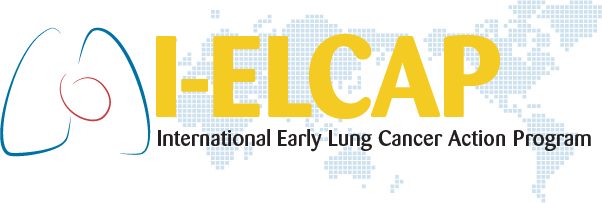Previous Meetings
The 13th International Conference on Screening for Lung Cancer
Friday, October 21, 2005 to Sunday, October 23, 2005
Weill Medical College of Cornell University
New York, NY
United States
Agenda: 13th Conference Agenda
Mission:
The broadest mission of these Conferences is the collective pursuit of avant-garde understanding of the issues surrounding screening for lung cancer, the broadest subissues being early diagnosis and early intervention. Any given Conference focuses on issues that are particularly topical at the time as well as providing an update of research on and practice of screening for lung cancer and related topics. The first 12 Conferences have focused on the research topics involved in early diagnosis and treatment of lung cancer. The cumulative evidence resulting from the I-ELCAP collaboration were presented at the 12th Conference. Starting with the 13th Conference, the focus is on guidelines for the practice of screening and the needed updating in light of advances in science and technology.
At this Conference we will focus on the dialogue between a potential screenee and the physician prior to the decision on whether to undergo CT screening for lung cancer. This presentation will focus on the information that should be provided by the physician in light of the accumulating evidence from the I-ELCAP collaboration. As always, we will also present scientific and technologic advances and their potential for incorporation into a continually updated I-ELCAP screening program.
Consensus Statement:
While the two broad missions of these conferences generally are the advancement of policy-relevant research on early diagnosis of lung cancer and its translation into up-to-date guidelines for practice, this conference focused on the latter. The morning plenary session on the first day addressed the information needs of a potential screenee in making the decision on whether to undergo a round of CT screening for lung cancer, and it provided the necessary information from the International Early Lung Cancer Action Program (I-ELCAP) consortium. Regarding early diagnosis per se, addressed were the probabilities of: 1) being diagnosed with Stage I lung cancer by the contemplated round of screening, 2) being subjected to additional imaging without a diagnosis of cancer, and 3) being subjected to biopsy without a diagnosis of lung cancer. Regarding the implications of Stage I diagnosis, addressed were: 1) the questions of whether immediate treatment is indicated for Stage I screen-diagnosed cancer and whether the treatment should vary according to subtypes, and 2) the probability of achieving cure of Stage I cancer by its early resection. Subsequent panel and audience discussion led to a consensus that these are the critical topics on which information should be presented to a potential screenee.
The afternoon plenary session addressed advances in and future directions of screening with focus on the integration of coronary calcification screening and quantitative assessment of the extent of obstructive pulmonary disease into lung cancer screening. The need for the continued development of computer aids to diagnosis was stressed for full abstraction of the information from ever more advanced CT scans.The potential usefulness of biomarkers for diagnosis and prognosis was again highlighted. So also was the potential of chemotherapy for early-stage cancer. The Nancy Terner Behrman Lecture addressed potential screening of people who have never smoked, as to whether, when and how often such screening might be done, and based on what indications of risk.
Three workshops were held. One of these addressed minimally invasive treatment, and consensus was reached that surgical treatment remains the generally preferred option with localized lung cancer, even though limited resections are being performed as well as being studied. There was consensus that limited resection or non-surgical treatments of Stage I cancer are justifiable for patients with contraindication for lobectomy. It was noted that currently insufficient information as to the usefulness of such treatment alternatives for small, early lung cancers, including percutaneous cryotherapy, radio-frequency or microwave ablation, are available while the usefulness of radiation therapy is better established. Nearly all of the evidence has thus far come from single institution studies, but larger trials are in early stages of development.
Another workshop addressed computer-aided detection and characterization of pulmonary nodules in CT images. These products are at an early stage of development and while they offer tangible benefits no large prospective clinical studies have been done. Current products are not efficient as typically they are not integrated into the primary reading workstation. A critical barrier to the further development of these products is the lack of well-established evaluation methods and the well-documented large image data sets. It was agreed that efforts to agree upon evaluation techniques and use of standard documented data sets should be supported.
The remaining workshop addressed the assessment of secondhand smoking exposure with a view to risk stratification. Based on the currently available research, the exposure needs to be characterized in respect to that in childhood and, separately, that in adulthood, and the latter separately as to that in the living situation and occupation. There was consensus on the pertinent questions concerning the levels of exposure in each of these categories for reliable answers in a questionnaire.
Scientific presentations and poster presentations remained a focal point of the conference.
